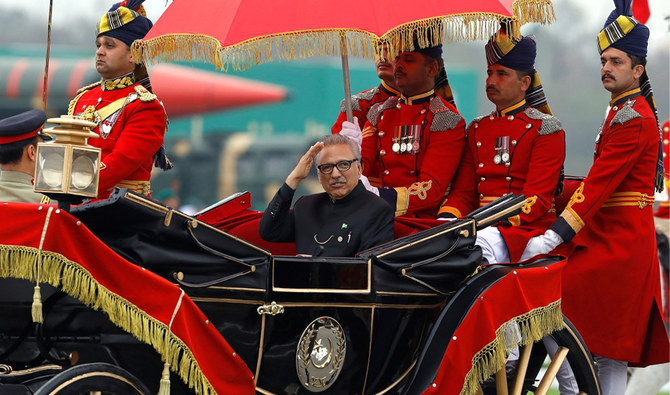ISLAMABAD: Pakistani President Dr. Arif Alvi will complete his five-year constitutional term today, Friday, after overseeing two transitions of power in the South Asian country that remains embroiled in political and economic crises.
Alvi took oath as the 13th president of Pakistan on September 9, 2018, after former prime minister Imran Khan’s Pakistan Tehreek-e-Insaf (PTI) party came to power in general elections that year.
There was no immediate word on the appointment of a new president in Pakistan, which has been governed by a caretaker government since early last month when the government of PM Shehbaz Sharif stepped down.
“An election to fill a vacancy in the office of President shall be held not later than thirty days from the occurrence of the vacancy,” reads Article 41 of the Constitution of Pakistan.
In Pakistan, a president is elected by members of an electoral college, which comprises both the upper and lower houses of parliament as well as provincial assemblies.
Constitutionally, the president can continue in office until his successor is elected to the office but Alvi has not yet confirmed if he will keep working or resign immediately after his term expires midnight on Friday.
Also, under the present circumstances when the country is being governed under an interim set-up, the election of a new president may be postponed to as far as February, after nationwide polls are held.
“Provided that, if the election [for a new president] cannot be held within the period aforesaid because the National Assembly is dissolved, it shall be held within thirty days of the general election to the Assembly,” Article 41 says.
The tenure of Alvi was marked by political instability and civil-military tensions and saw the ouster of Khan in a parliamentary no-trust vote in April 2022, and the election of Sharif as PM the same month. The Sharif coalition government dissolved parliament and stepped down on Aug. 9.
















